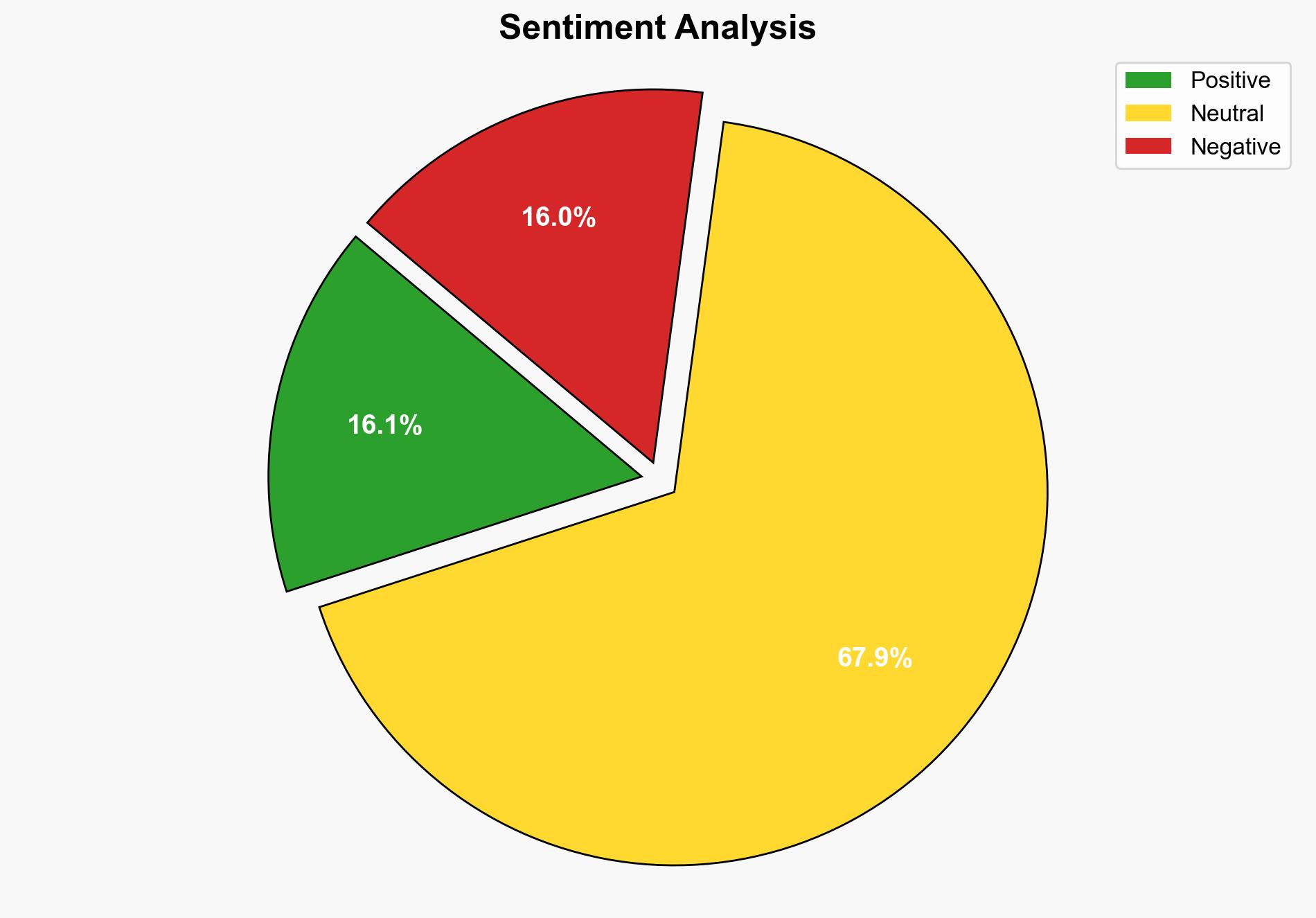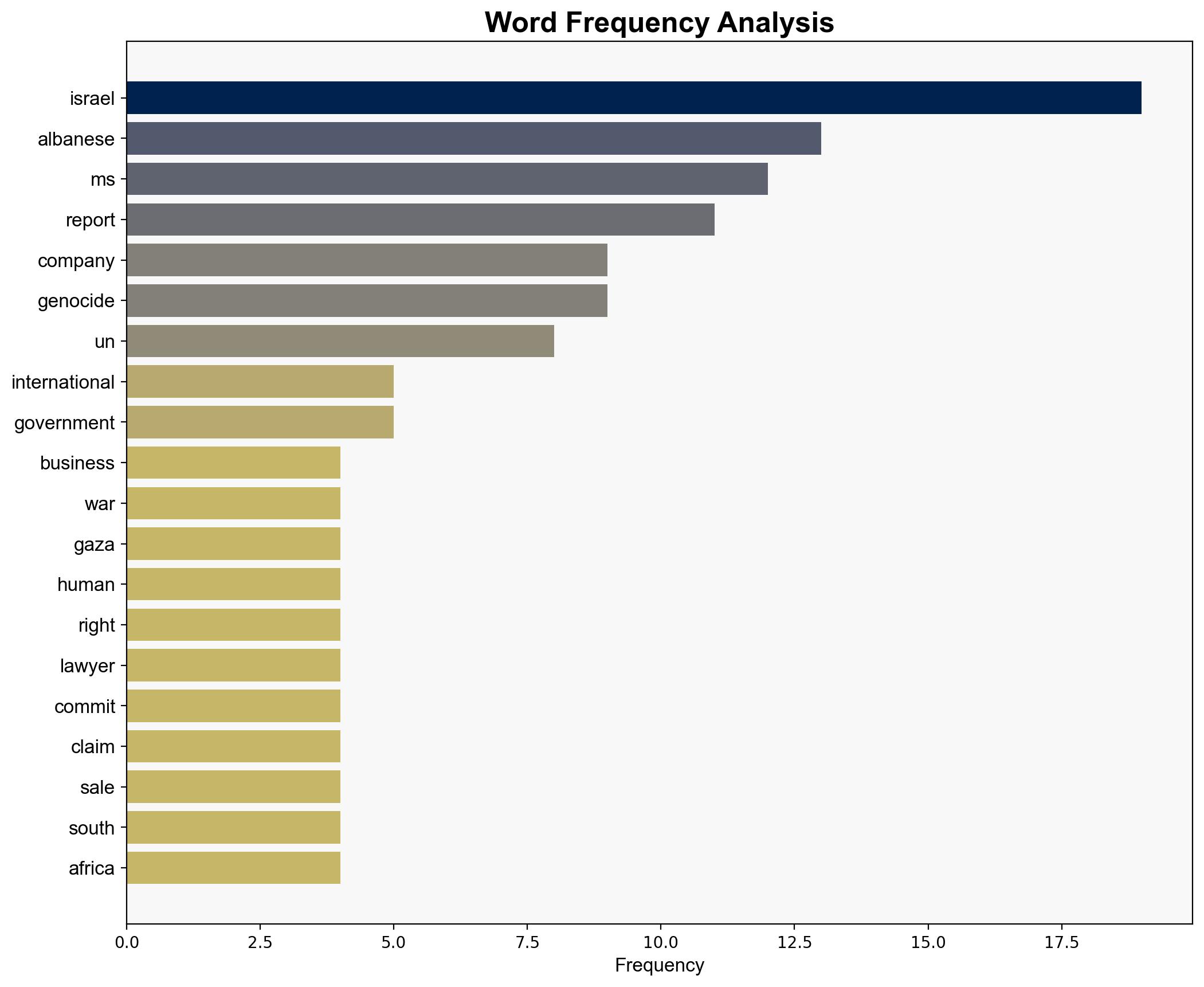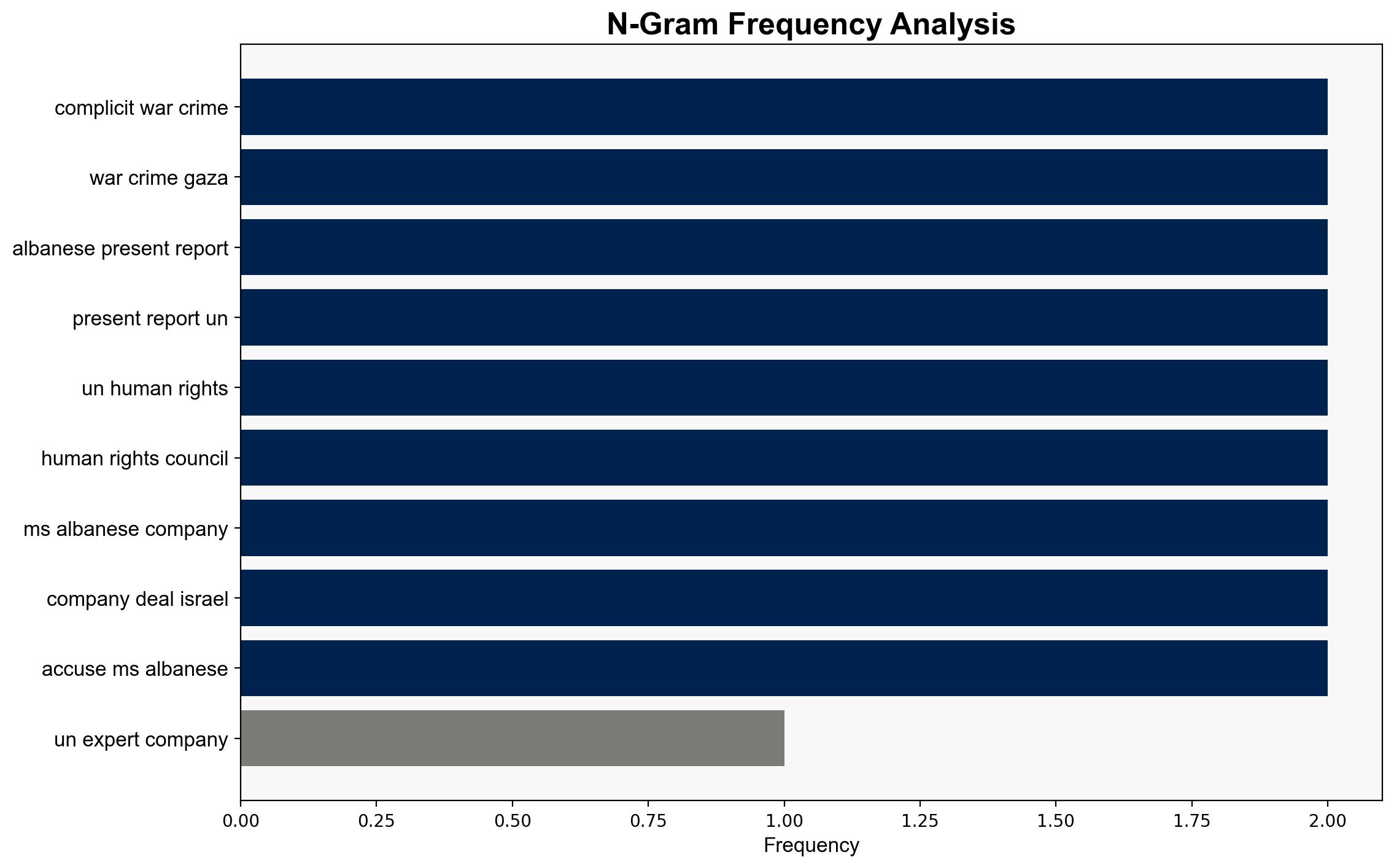UN expert calls for companies to stop doing business with Israel – BBC News
Published on: 2025-07-03
Intelligence Report: UN Expert Calls for Companies to Stop Doing Business with Israel – BBC News
1. BLUF (Bottom Line Up Front)
The report by Francesca Albanese, presented to the UN Human Rights Council, urges multinational companies to cease business operations with Israel, citing potential complicity in alleged war crimes in Gaza and the West Bank. The report names several prominent companies and suggests their activities may contribute to what is described as genocide. Israel has rejected these claims as unfounded. The report aims to draw parallels with historical disinvestment campaigns, such as those against apartheid South Africa, to pressure companies and governments into action.
2. Detailed Analysis
The following structured analytic techniques have been applied to ensure methodological consistency:
Cognitive Bias Stress Test
The report’s claims were scrutinized for potential biases. The historical context of similar disinvestment campaigns was considered, and the potential for bias in equating current events with past genocides was evaluated.
Bayesian Scenario Modeling
Probabilistic forecasting suggests a moderate likelihood of increased international scrutiny on companies named in the report, though significant economic impact on Israel remains uncertain without broader international consensus.
Network Influence Mapping
Key relationships between multinational corporations, the Israeli government, and international bodies were mapped. The influence of advocacy groups and UN member states supporting the report was also considered.
Narrative Pattern Analysis
The narrative of corporate complicity in alleged war crimes was deconstructed. The report’s framing aims to mobilize public opinion and consumer behavior against the named companies, leveraging historical precedents.
3. Implications and Strategic Risks
The report could lead to increased pressure on multinational companies from advocacy groups and consumers, potentially affecting their operations and reputations. There is a risk of heightened tensions between Israel and countries supporting the report. Additionally, the narrative could influence policy discussions on arms sales and economic ties with Israel.
4. Recommendations and Outlook
- Companies named in the report should assess their supply chains and business practices to mitigate reputational risks and ensure compliance with international human rights standards.
- Governments should prepare for potential diplomatic tensions and consider the implications of aligning with or against the report’s recommendations.
- Scenario-based projections:
- Best Case: Constructive dialogue leads to improved human rights practices without significant economic disruption.
- Worst Case: Escalation of international tensions and economic sanctions against Israel, impacting global markets.
- Most Likely: Increased advocacy and consumer pressure on companies, with limited immediate policy changes.
5. Key Individuals and Entities
Francesca Albanese, Lockheed Martin, Alphabet, IBM, Microsoft, Amazon, Caterpillar, Hyundai, Volvo, BNP Paribas, Barclays.
6. Thematic Tags
national security threats, human rights, international relations, corporate responsibility, geopolitical tensions





